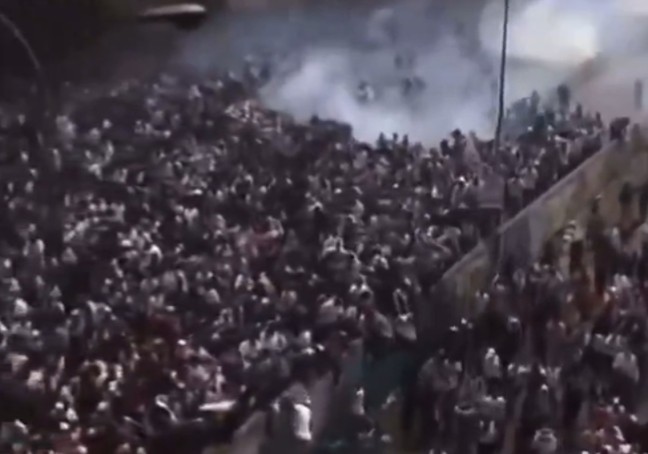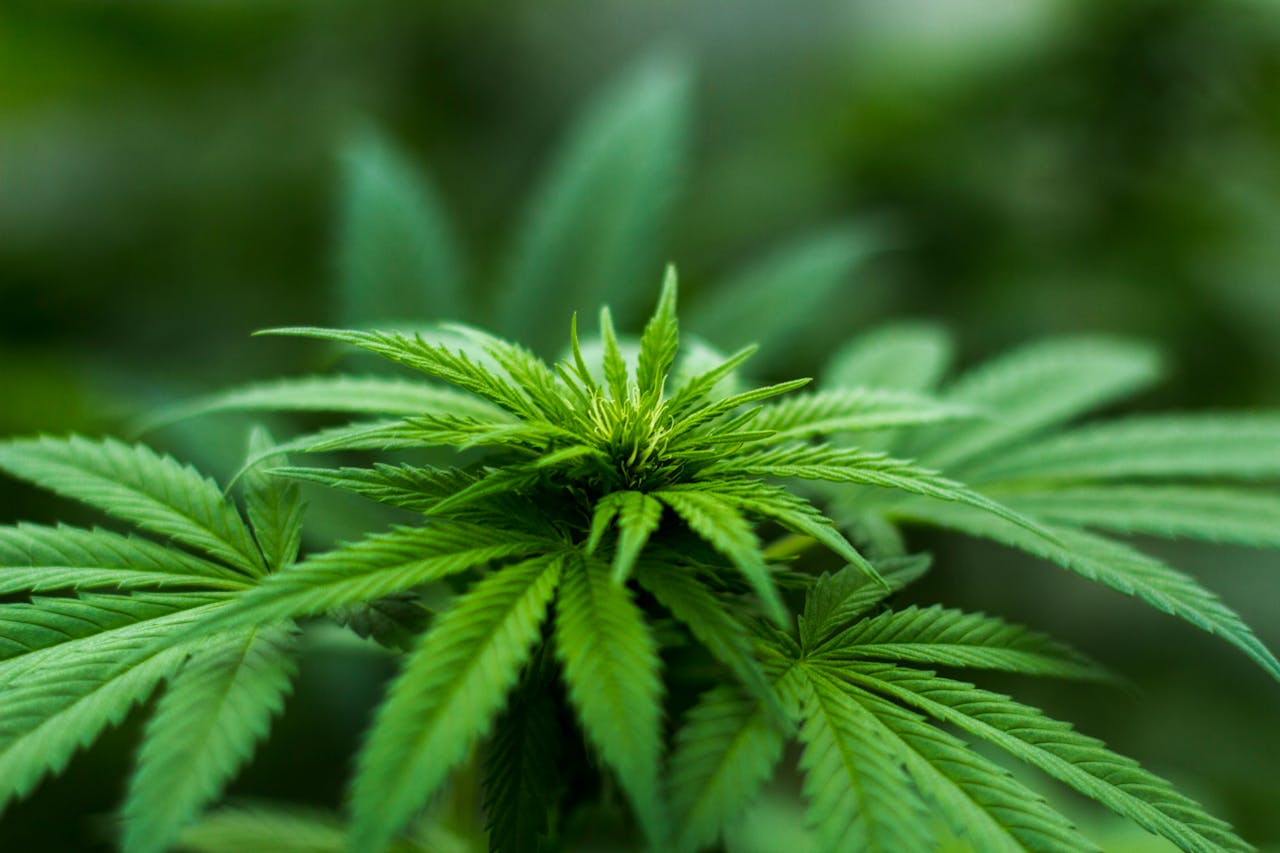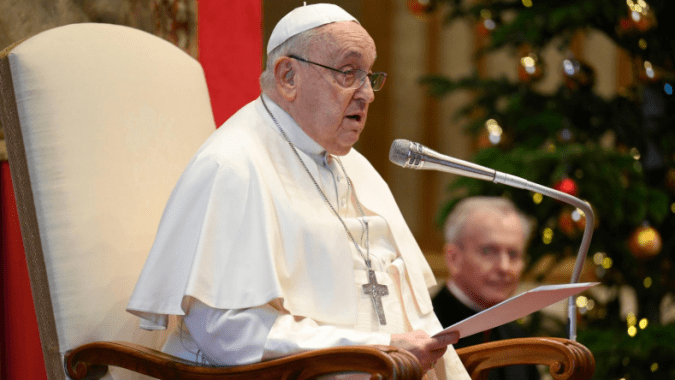Venezuelans clash with police after disputed election result

Security forces in Venezuela have fired tear gas and rubber bullets against people protesting over Sunday’s disputed election result.
Thousands of people descended on central Caracas on Monday evening, some walking for miles from slums on the mountains surrounding the city, towards the presidential palace.
Protests erupted in the Venezuelan capital the day after President Nicolás Maduro claimed he had won.
The opposition has disputed Maduro’s declaration of victory as fraudulent, saying its candidate Edmundo González won convincingly with 73.2% of the vote.
Opinion polls ahead of the election suggested a clear victory for the challenger.
Opposition parties had united behind González in an attempt to unseat President Maduro after 11 years in power, amid widespread discontent over the country’s economic crisis.
Several Western and Latin American countries, as well as international bodies including the UN, have called on the Venezuelan authorities to release voting records from individual polling stations.
Argentina is one country which has refused to recognise President Maduro’s election victory, and in response, Venezuela recalled diplomats from Buenos Aires.
Diplomats from six other Latin American countries Chile, Costa Rica, Panama, Peru, the Dominican Republic and Uruguay have also been withdrawn for what Foreign Affairs Minister Yvan Gil described on social media as “interventionist actions and statements.”
Venezuela’s government also announced a temporary suspension of commercial air flights to and from Venezuela with Panama and the Dominican Republic starting from 20:00 local time on Wednesday.
A heavy military and police presence, including water cannons, was on the streets of Caracas to try to disperse protesters and prevent them from approaching the presidential palace.
Crowds chanted “Freedom, freedom!” and called for the government to fall.
Footage showed tyres burning on highways and large numbers of people on the streets, with police on motorbikes firing tear gas.
In some areas, posters of President Maduro were ripped down and burned while tyres, cars and rubbish have also been set alight.
Armed police, military and left-wing paramilitaries who are sympathetic to the government clashed with protesters and blocked off many roads around the city centre.
The BBC spoke to several people who attended one protest in a densely-populated area known as La Lucha, meaning “the fight”.
Paola Sarzalejo, 41, said the vote was “terrible, fraud. We won with 70%, but they did the same thing to us again. They took the elections from us again.
“We want a better future for our youth, for our country.”
Her father Miguel, 64, agreed, saying: “He lost the elections, he has no right to be there right now.”
He added: “We want a better future for the youth because if not they will leave the country. One where they can work well and earn well. We have a rich country and he is destroying everything.
“If the youth all leave, only old people will be left in Venezuela, only senior citizens.”
Cristobal Martinez, draped in a Venezuelan flag, said he thought the election was a “fraud”.
He said most young people in La Lucha and surrounding areas had voted in an election that was particularly important for young people as “many of us are unemployed” and “the majority do not study”.
“It was the first time I have voted in my life. I was there from six in the morning until approximately nine in the morning and saw many people mobilising in the street.
“There was a lot of discontent towards the government. The majority of people were participating in change.”
He said while President Maduro had been in office for a long time there had not been “any change” and it had been “worse since President Chavez died”.
He accused some older people who sympathised with the government of living off bonuses or food handouts whereas “we want a change, we want decent jobs, a good future for our country”.
Martinez said he wanted “people from other countries to help us… so that a disaster doesn’t happen like in previous times”.











